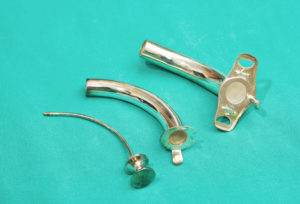 It’s true. Even nurses make mistakes sometimes. Studies have shown that errors, accidents, injuries, and infections are to blame for at least 180,000 patients killed every year in American hospitals.¹ No matter the profession, it is critically important to follow rules and guidelines that are aimed at decreasing the number of preventable fatalities. We all make mistakes, but what errors do nurses make the most and how can they be avoided?
It’s true. Even nurses make mistakes sometimes. Studies have shown that errors, accidents, injuries, and infections are to blame for at least 180,000 patients killed every year in American hospitals.¹ No matter the profession, it is critically important to follow rules and guidelines that are aimed at decreasing the number of preventable fatalities. We all make mistakes, but what errors do nurses make the most and how can they be avoided?
The Top 7 Nursing Errors²
- Failure to collaborate with other health care team members
- Failure to clarify interdisciplinary orders
- Failure to ask for and offer assistance
- Failure to utilize evidence-based performance guidelines or bundles
- Failure to communicate information to patients and families
- Failure to limit overtime
- Failure to adequately staff patient care units with enough nurses to allow them to safely provide care
Take a look at some scenarios (and solutions) that may be caused by these types of nursing errors:²
- Patient Falls — One out of three adults age 65 and older falls each year according to the Centers for Disease Control. It’s important to keep in mind that falls can be caused by a lot of different things, such as vertigo, the flu, multiple sclerosis, and anesthetic medications. To keep falls from happening, assess the patient’s gait when out of bed and offer assistance if necessary. Also, consider protective measures such as nonslip socks and bed alarms to further decrease the risk of falling.
- Infections — The simplest measure a nurse can take in preventing infections is to ensure basic hand hygiene. Take your time! Other than that, measures include using chlorhexidine for skin preparation and appropriate cleaning of urinary catheters. Make sure that you’ve taken thorough precautions in cleaning yourself, your patient, or your environment.
- Medication Errors — Distractions are the primary cause of medication errors. In the United States alone, medication errors kill one person every day (National Medication Errors Reporting Program). Collaborate with the pharmacy to ensure look-alike or sound-alike medications are not stored next to each other. Bar coding medication scanning systems can also help track and dispense medications more accurately.
- Documenting Errors — Though it may seem that there is never enough time to do it all, you should never compromise accurately documenting all major events and changes in patient condition when or soon after they occur. Double check! Make sure that all documentation is on the right patient and that he or she can comprehend the information provided.
- Equipment Injury — New equipment make their way through hospital doors every day. To evade equipment injury, request training on equipment you don’t know how to use. Report any defects or damages you find on the equipment in a timely manner. If an injury occurs, thoroughly document it and alert the risk management department.
So what should you do if you make a mistake? The most important things you can do are accept responsibility and disclose your errors . You can do so voluntarily and confidentially by reporting any event that may adversely affect patients to your facility’s risk management department.
Comment below if you have other tips on how to avoid nursing errors!
Sources: